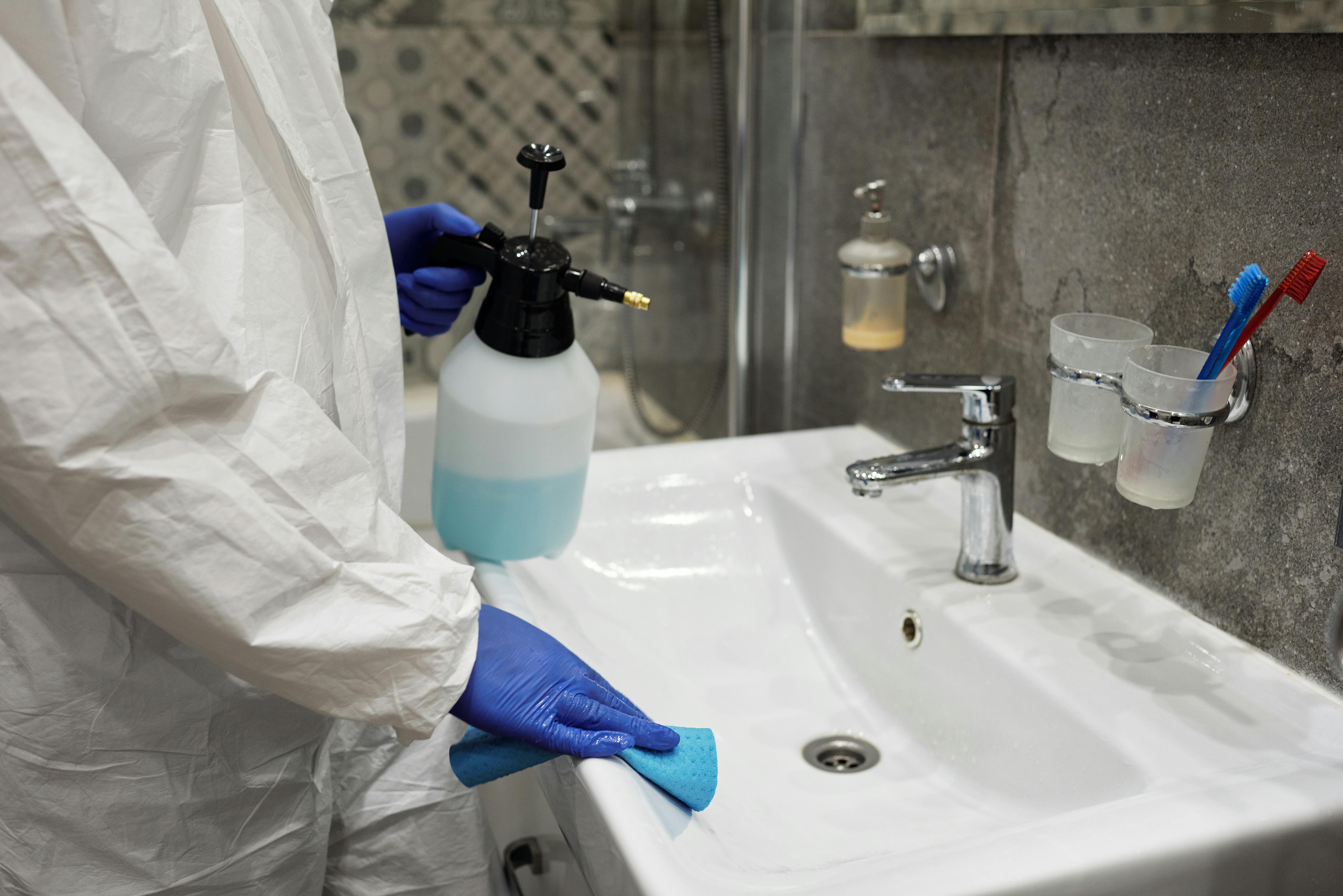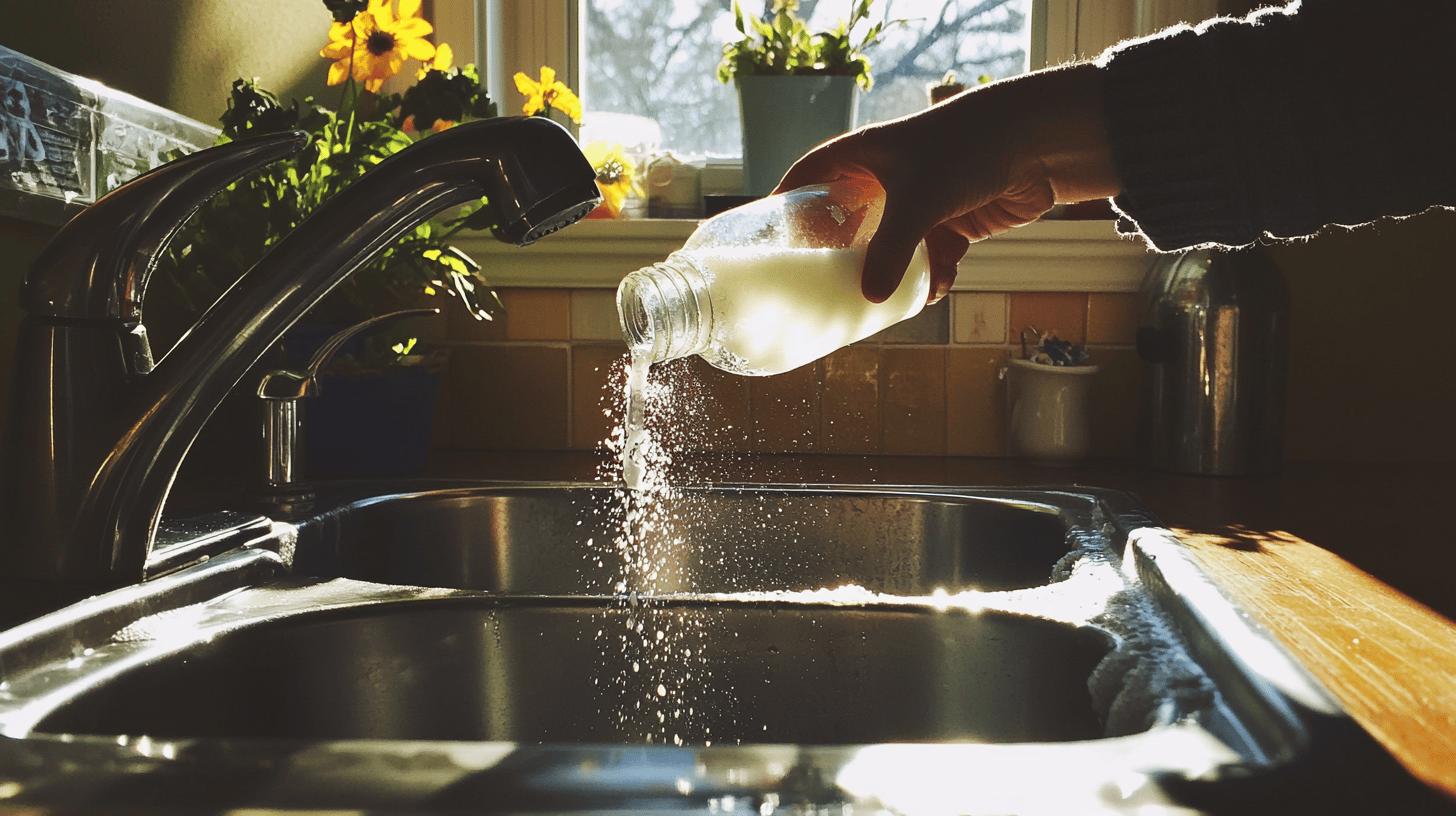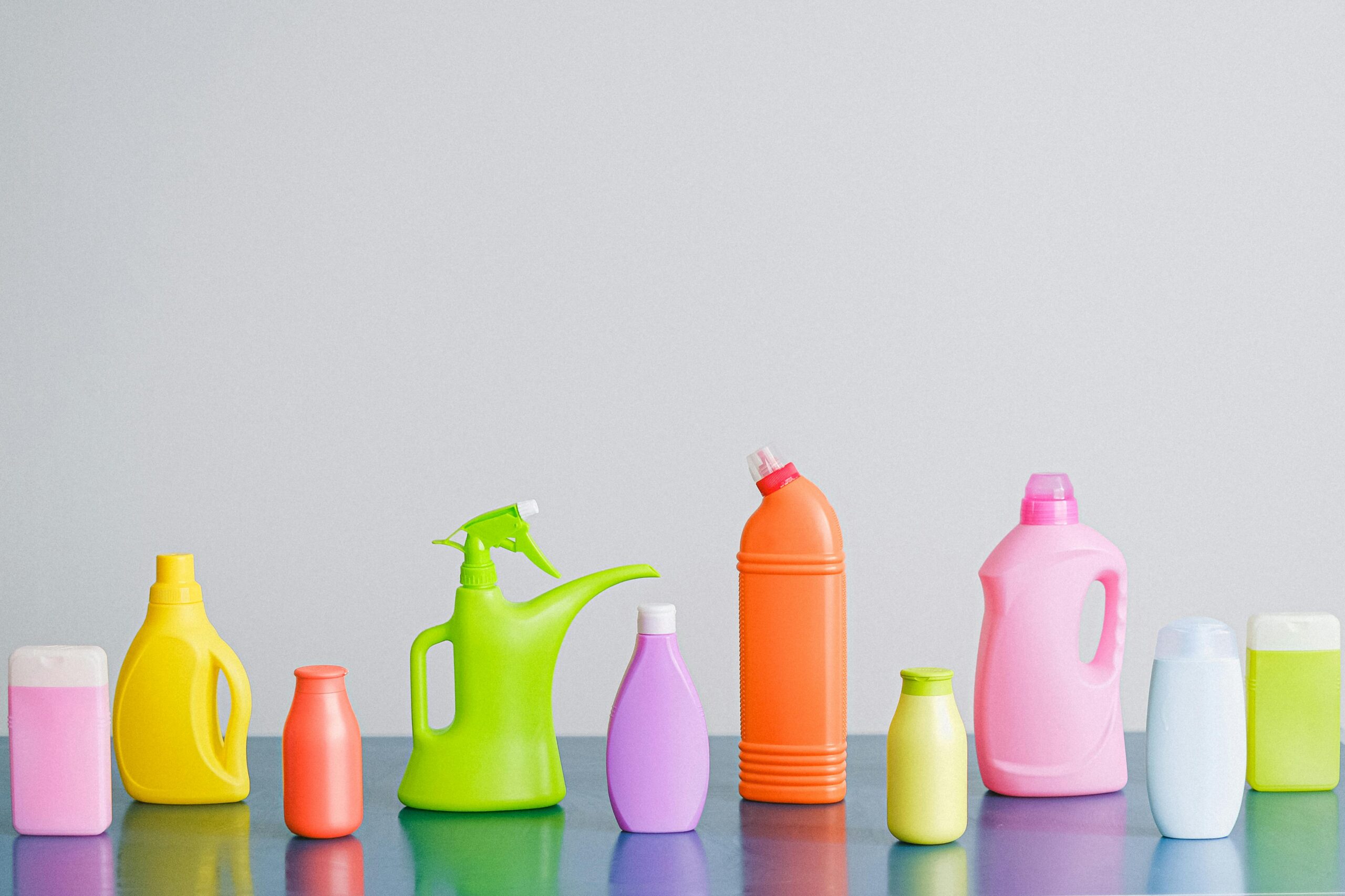TL;DR:
- At-risk pipe materials: Galvanized steel, iron, PVC, copper, composite plumbing.
- Health/environmental impact: Chemical drain cleaners contaminate water, harm air quality, cause skin burns, and affect aquatic life.
- Ineffective on clogs: Non-organic blockages (plastic, complete drains), garbage disposals, toilets, hair entanglements, hard materials.
- Safer alternatives: Baking soda and vinegar, enzyme-based cleaners, plumber’s snake, manual tools (plunger).
- When to call a plumber: Persistent blockages, recurring clogs, severe leaks, or emergencies needing immediate attention. Regular inspections can prevent issues.
Ever thought about how much damage a simple drain cleaner could do to your pipes? Chemical drain cleaners might seem like an easy fix for clogs, but they can actually harm your plumbing. Knowing when not to use them is key to protecting your pipes. Let’s break down the risks based on different pipe materials and see how these cleaners can cause corrosion and other damage. This info could save you from expensive repairs and stress.
Risks of Using Drain Cleaner on Various Pipe Materials
Avoid using drain cleaners on older or sensitive pipes. The chemicals can corrode pipes, causing leaks or even bursts. Galvanized steel, iron, and copper pipes are especially vulnerable, as the cleaners can speed up existing corrosion. PVC pipes can also get damaged from the heat, leading to warping or melting. Using these cleaners can lead to major damage, like leaks, blockages, or even water contamination. That’s why it’s important to think about your plumbing materials before using chemical cleaners.
- Galvanized steel pipes
- Iron pipes
- PVC pipes
- Copper pipes
- Composite plumbing systems
Environmental and Health Concerns of Chemical Drain Cleaners

Using chemical drain cleaners can harm both the environment and your health. These chemicals often pollute surrounding areas, seeping into the ground and eventually contaminating water supplies, affecting ecosystems downstream. They also release fumes that irritate the eyes, throat, and lungs, with long-term exposure leading to serious respiratory problems. If the chemicals come into contact with your skin, they can cause burns or allergic reactions. Drain cleaners also hurt air quality and aquatic life, as the fumes impact the air, and the chemicals pose a threat to fish and other organisms in waterways.
A safer option is to consult a plumber for alternatives. They can recommend mechanical tools or enzyme-based products, which don’t carry the same risks as chemical cleaners. This way, you can keep your drains clear without harming your health or the environment.
| Aspect | Risk |
|—————————|——————————-|
| Chemicals in water supply | Contamination |
| Air quality deterioration | Harmful fumes |
| Skin irritation | Burns or allergic reactions |
| Respiratory problems | Fume inhalation |
| Aquatic life harm | Ecological disruption |
Ineffectiveness of Drain Cleaners for Certain Clogs
Drain cleaners aren’t effective for clogs caused by non-organic materials. They can’t dissolve blockages from plastic or clear completely blocked drains where the chemicals can’t reach the clog. These solutions also struggle with complex clogs in garbage disposals or toilets, which often involve hard materials that need mechanical force to break apart. Issues like hair tangles and hard objects require mechanical tools or the expertise of a professional plumber to fix effectively.
- Plastic object blockages
- Blocks in garbage disposals
- Completely blocked drains
- Clogs in toilets
- Hair entanglements not dissolvable
- Hard materials obstruction
Alternatives to Chemical Drain Cleaners

Look for alternatives to avoid the risks of harsh chemicals. Natural methods, like baking soda and vinegar, work well without damaging your pipes or harming the environment. When mixed, they create a fizzing reaction that helps break up minor clogs and eliminate odors.
Mechanical tools, like a plumber’s snake, are great for tackling stubborn blockages that chemicals can’t dissolve, like tough hair clumps or solid objects. Plungers are also essential for applying direct pressure to dislodge clogs, making them a must-have in any drain-clearing toolkit.
Enzyme-based cleaners offer a safer way to keep drains clear over time. These cleaners use natural bacteria and enzymes to break down organic matter, reducing the risk of pipe damage and environmental impact. They’re perfect for regular maintenance.
DIY Drain Cleaning Methods
DIY methods using everyday household items can help with minor clogs. For example, combining baking soda and vinegar can effectively and safely clear drains. Along with enzyme-based cleaners, these options provide a less harmful way to keep your drains clear.
- Baking soda and vinegar
- Enzyme-based cleaners
- Plumber’s snake
- Manual removal tools
When to Rely on Professional Plumbers
If you’re dealing with stubborn or complicated plumbing issues, it’s time to call a professional plumber. When DIY methods don’t work, experts can diagnose and tackle the root problems effectively. Serious blockages or repeated clogs often need specialized tools and skills that only professionals possess.
Hiring a pro increases the chances of success and reduces the risk of further damage. Their experience ensures the job gets done right, saving you time and hassle. Plus, they can give you tips on preventing future issues, which helps your plumbing last longer.
You should definitely seek emergency plumbing help for serious leaks, burst pipes, or total blockages that could cause significant damage. Getting professional help right away can minimize the damage and restore functionality. Regular inspections can also catch potential problems before they become emergencies, keeping your system running smoothly.
Final Words
Knowing when to steer clear of drain cleaners is key to keeping your plumbing in good shape. Chemical cleaners can eat away at old or weak pipes, harm the environment, and pose health risks, so it’s important to use them carefully. Plus, they often don’t work on tough or complicated clogs, which can lead to frustration and more damage.
Instead, consider natural solutions or mechanical tools as safer alternatives. For stubborn blockages, hiring a professional plumber is the way to go. They have the expertise to provide effective and safe solutions.
With this info, you can make smart choices that protect both your plumbing and the environment.
FAQ
When should you not use drain cleaner?
Avoid using drain cleaner on old or corroded pipes, such as those made of galvanized steel or iron. PVC pipes can also be damaged by the heat from chemical reactions.
Will drain cleaner damage my pipes?
Using drain cleaner can damage pipes, especially older ones. Chemicals may exacerbate corrosion, leading to leaks and structural weakening.
Do plumbers recommend drain cleaner?
Plumbers generally do not recommend drain cleaners due to potential pipe damage and the risk of not effectively resolving the issue.
Why do plumbers say to not use Drano?
Plumbers advise against using Drano because its harsh chemicals can corrode pipes, cause environmental harm, and may not solve complex clogs.

